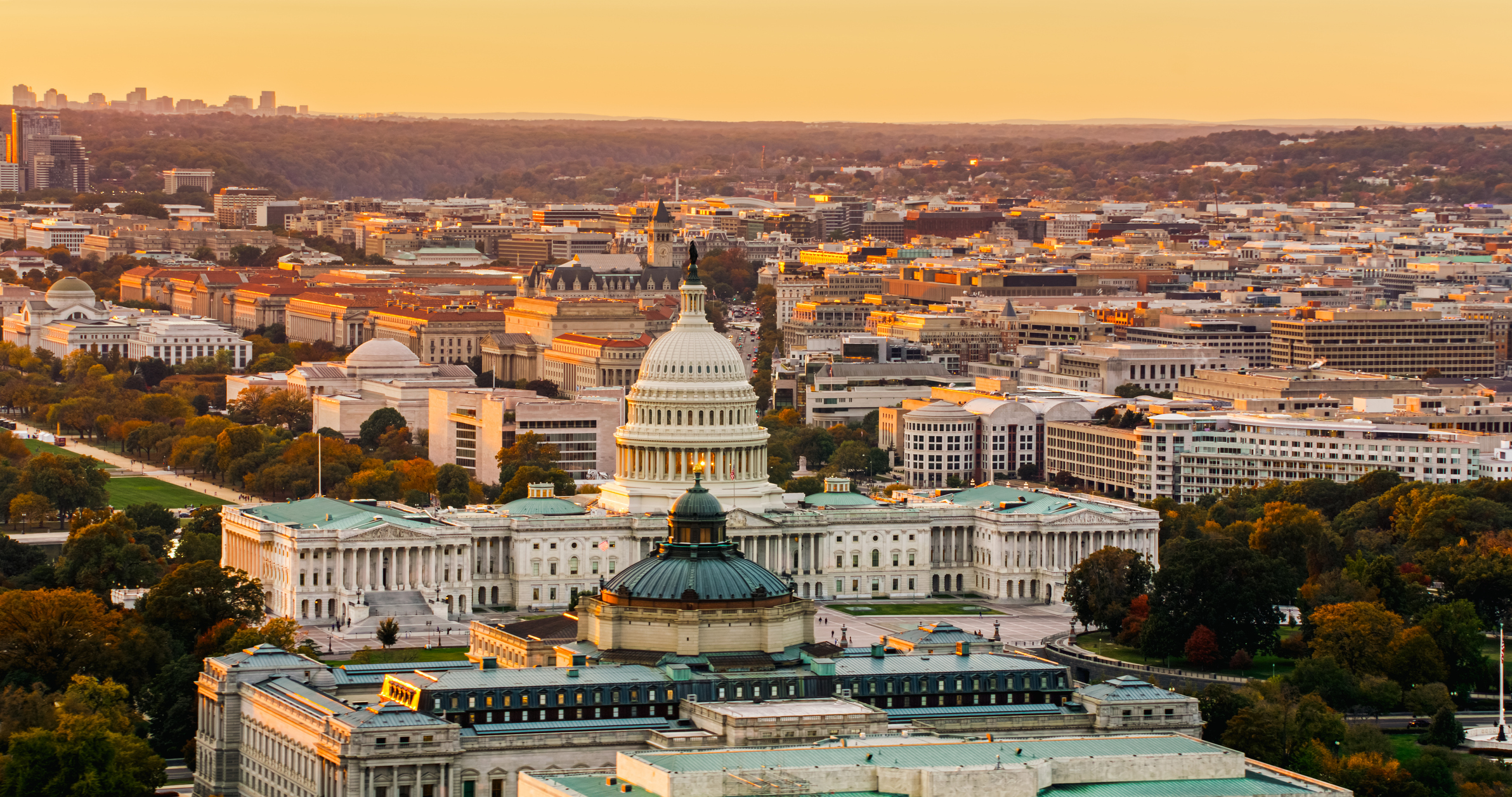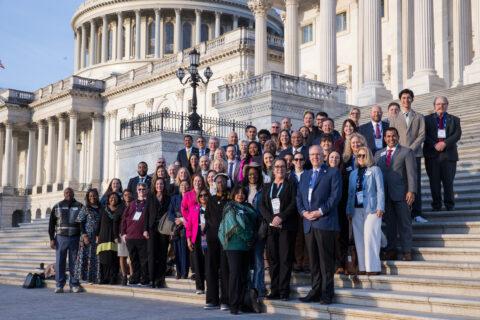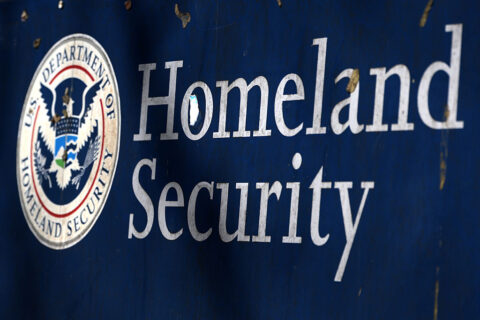As part of the funding offset for the House Republican “One, Big, Beautiful Bill Act (PDF)” to extend the 2017 tax cuts, the House Energy and Commerce Committee was charged with securing $880 billion in program cuts or revenue generation.
On May 13, the Committee passed the bill along a party line vote, targeting clean energy programs and Medicaid as funding offsets, and the bill passed the House on May 21 in a vote of 215-214. Here is a section-by-section summary of the Energy and Commerce bill (PDF) and a look at the key provisions for local governments.
Clean Energy Funding from the Inflation Reduction Act
The bill repeals unobligated funding from several grant programs under the U.S. Environmental Protection Agency (EPA) and U.S. Department of Energy established by the Inflation Reduction Act (IRA). Among the programs for repeal and rescission that local governments are utilizing are:
- Greenhouse Gas Reduction Fund
- Climate Pollution Reduction Grants, which consisted of regional planning and implementation grants.
- Clean Heavy-duty Vehicles
- Clean Ports
- Environmental Justice/Climate Grants, including the Government-to-Government and Community Change grants. Several communities report to NLC that they have received termination notices from EPA regarding these grant programs.
These programs were one-time funding under the IRA. NLC analysis of USAspending data indicates that most local governments that received funding under these programs have obligated awards. However, repealing the authorization for these programs would impact grant implementation and agency oversight and jeopardize the viability of the obligated funds under signed grant agreements.
Additionally, the Greenhouse Gas Reduction Fund is subject to ongoing litigation, which may impact Congress’s ability to recoup funding from this program.
Medicaid
The bill contains $715 billion in healhcare cuts, the majority of which come from Medicaid, which is the largest program providing medical and health-related services to low-income individuals in the United States. While these cuts are estimated to reduce the deficit by at least $715 billion over 10 years, the Congressional Budget Office also estimates that 13.7 million Americans will become uninsured by 2034 as a result of these changes.
Among the changes to the Medicaid program are:
- Mandates that states impose work requirements on able-bodied adults without dependents (80 hours per month).
- Reduced federal spending to states (Federal Medical Assistance Percentage or FMAP) that expanded Medicaid and use their own funds to provide Medicaid coverage to undocumented immigrants.
- Suspension of streamlined eligibility and facilitated enrollment under Medicaid.
Medicaid is a federal-state-local partnership that provides health coverage to approximately 79 million Americans, including children, seniors, people with disabilities and low-income adults. It covers 38 million children, funds 40% of all births, supports rural hospitals and is the largest payer of long-term care and behavioral health services. Expansion has provided additional federal funding to 41 states, increasing access to care, particularly for those with substance use disorders.
Preserving state flexibility and preventing significant funding cuts are both critical to ensuring Medicaid can be tailored to local priorities. The proposals included in the House bill would severely limit this ability, forcing states to reduce services, restrict eligibility or shift costs to local governments.
Artificial Intelligence
The bill includes a provision preempting state, tribal, territorial and local regulations governing artificial intelligence systems for ten years. It includes carve-outs for laws intended to facilitate the deployment of artificial intelligence technologies or to facilitate their use for government functions such as permitting and procurement. Several state governments have considered legislation to govern artificial intelligence models and platforms, although local governments have generally not sought to directly regulate artificial intelligence. It is unclear whether the preemption would limit the ability of local governments to prohibit or limit the use of certain artificial intelligence tools or functions by local government departments.
Learn More and Take Action
The “One, Big, Beautiful Bill” now moves to the Senate, where changes are expected.
To learn more about the tax provisions of the House bill and how it would limit local government ability to utilize the IRA direct pay provision for local clean energy projects, read NLC’s summary of the House Ways and Means Committee provisions.
Recently, 175 local elected officials signed onto a letter urging Senate and House leaders to preserve the IRA clean energy tax credits (PDF).
Read NLC’s letter (PDF) to House and Senate leaders on local government priorities for the tax package, as well as NLC’s joint letter on Medicaid (PDF).
Reach Out
It is important that local leaders continue to let their Members of Congress know how your community is utilizing clean energy programs. Use this online form to send a letter to your Congressional Delegation.











